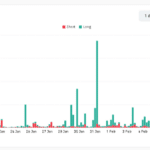By Lisa Twaronite, MarketWatch
Last update: 6:32 p.m. EST Jan. 16, 2009
SAN FRANCISCO (MarketWatch) -- President-elect Barack Obama trumpeted his message of change all the way to the White House, but when it comes to the U.S. tone on China and its yuan, economists say that message might not apply.
U.S. manufacturers have long claimed that the Chinese currency is undervalued, giving its goods a competitive edge. A weaker currency helps exporters by making their goods more attractively priced in overseas markets, and boosting the value of their repatriated profits.
While Bush administration officials sometimes called for greater yuan appreciation, their pressure was relatively light.
"As Treasury Secretary, [Henry] Paulson has favored the buddy-vs.-bully approach to China. Although the Chinese yuan has appreciated 15% over the past two years, it is still considered undervalued," said Kathy Lien, director of currency research at GFT in New York.
China itself has every reason to avoid both depreciation and appreciation of its currency. The latter could further weigh on already drooping exports, and the former could lead to capital outflows from the country.
Whether the Obama administration will change the U.S. tone on China "is a matter of concern. I do believe that the new administration may take a more protectionist approach, which may include pushing for a more favorable currency position," said Rob Lutts, the chief investment officer of Cabot Money Management, a Salem, Mass.-based independent wealth-management firm.
"There is a real danger in this new administration that they may abandon the free-market approach that we have all become reliant on in our analysis. We may find an administration that becomes tough on trade and sets barriers to global trade," he added.
Some politicians have even warned that Obama could not only step up the rhetoric, but back up tougher words with action. "I don't think just jawboning will be the approach of this administration," Rep. Sander Levin, a Michigan Democrat who chairs a trade subcommittee in the House of Representatives, said Wednesday, according to media reports.
But so far, China does not appear to be poised to export its way out of the global downturn. Instead, it is pinning its recovery hopes on stimulus and steps aimed at boosting domestic demand, which bodes well for those betting on stable foreign exchange.(Hmmmm... that is a rather hopeful narrative. Boosting domestic demand in China in a world economic crisis flies in the face of ingrained frugality earned by a difficult past. Methinks it will be years not months until there is a considerable shift from 'saving' to 'consuming' ... -AM)
Subscribe to:
Post Comments (Atom)




No comments:
Post a Comment